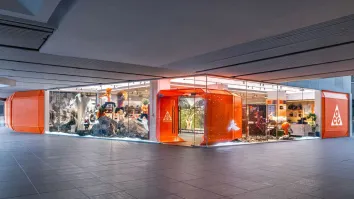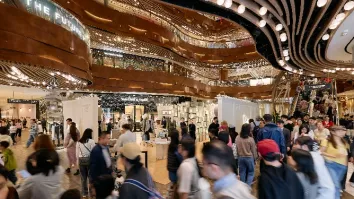Fashion re-commerce to grow 16x faster than traditional retail
Brands see resale as an opportunity to have an environmental impact.
Retail brands are increasingly recognizing the dual opportunity presented by the circular economy—making a positive environmental impact while tapping into the fashion resale market which is forecasted to grow 16 times faster than traditional retail.
According to Eastwood, there is a huge business opportunity with the fashion resale market, which is currently witnessing different programs implemented by retailers.
He said fashion brands are adopting three distinct approaches to navigate the shift. Some are embracing pure sustainability with recycling programs, others are partnering with marketplaces like Carousell, and a few are establishing in-house resale programs linked to their websites.
“One is around pure sustainability. Some brands are partnering with marketplaces. And then other brands are creating a fully fledged brand own resale program. And that's generally linked to their.com website. It's an end to end brand solution,” Eastwood said.
He addressed the misconception that resale programs might cannibalise new sales. Drawing from global case studies, he reveals that 70 to 80% of resale platform customers are entirely new to the brand, often belonging to a younger demographic which extends the brand's reach and lifetime value.
“In addition to that, is that typically the reseller programs have some sort of churn mechanism. And what we're seeing is that on average, when a consumer is issued with a voucher, they tend to spend two and a half times the value of that voucher. So that is, in turn, increasing new sales as opposed to cannibalising them,” he said.
Despite these successes, brands grapple with the challenge of where to house these resale initiatives internally. Eastwood suggests the evolution of dedicated resale business units within brands, potentially led by general managers with a keen focus on the circular economy.
The resale model, as explained by Eastwood, typically involves two phases. The first phase facilitates trade by offering vouchers in exchange for secondhand items.
“So a user would come in store with their secondhand items, they would get issued with a brand's voucher. In this first phase, they would typically partner with someone, perhaps like a car seller, to collect all of those secondhand items and resell them. And the brand wouldn't necessarily then take part in the resale,” he said.
The second phase sees brands launching comprehensive resale programs, often integrated into their websites. Notable brands like North Face, Lululemon, Tommy Hilfiger, and Kate Spade have dedicated tabs on their websites, providing users with a trustworthy platform to both sell and purchase second hand items.
“What this offers is they offer users to resale their old items, but also then gives new customers and younger customers the ability to buy those branded items secondhand, but through the brand.com. So they trust that these things are authentic. They trust that these things are in good order,” he explained.
Eastwood said that this resale model not only contributes to sustainability goals but also fosters a full-circle brand-consumer relationship. Customers can seamlessly transition from selling their pre-loved items to purchasing authentic secondhand goods through the brand's platform, creating a holistic brand experience.



















 Advertise
Advertise






Commentary
The festive season is a revenue moment – don't let friction or fraud derail it